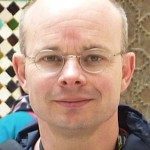Lien vers Pubmed [PMID] – 27899089
BMC Pediatr 2016 11;16(1):195
BACKGROUND: Families with 46,XY Disorders of Sex Development (DSD) have been reported, but they are considered to be exceptionally rare, with the exception of the familial forms of disorders affecting androgen synthesis or action. The families of some patients with anorchia may include individuals with 46,XY gonadal dysgenesis. We therefore analysed a large series of patients with 46,XY DSD or anorchia for the occurrence in their family of one of these phenotypes and/or ovarian insufficiency and/or infertility and/or cryptorchidism.
METHODS: A retrospective study chart review was performed for 114 patients with 46,XY DSD and 26 patients with 46,XY bilateral anorchia examined at a single institution over a 33 year period.
RESULTS: Of the 140 patients, 25 probands with DSD belonged to 21 families and 7 with anorchia belonged to 7 families. Familial forms represent 22% (25/114) of the 46,XY DSD and 27% (7/26) of the anorchia cases. No case had disorders affecting androgen synthesis or action or 5 α-reductase deficiency. The presenting symptom was genital ambiguity (n = 12), hypospadias (n = 11) or discordance between 46,XY karyotyping performed in utero to exclude trisomy and female external genitalia (n = 2) or anorchia (n = 7). Other familial affected individuals presented with DSD and/or premature menopause (4 families) or male infertility (4 families) and/or cryptorchidism. In four families mutations were identified in the genes SRY, NR5A1, GATA4 and FOG2/ZFPM2. Surgery discovered dysgerminoma or gonadoblastoma in two cases with gonadal dysgenesis.
CONCLUSIONS: This study reveals a surprisingly high frequency of familial forms of 46,XY DSD and anorchia when premature menopause or male factor infertility are included. It also demonstrates the variability of the expression of the phenotype within the families. It highlights the need to the physician to take a full family history including fertility status. This could be important to identify familial cases, understand modes of transmission of the phenotype and eventually understand the genetic factors that are involved.

